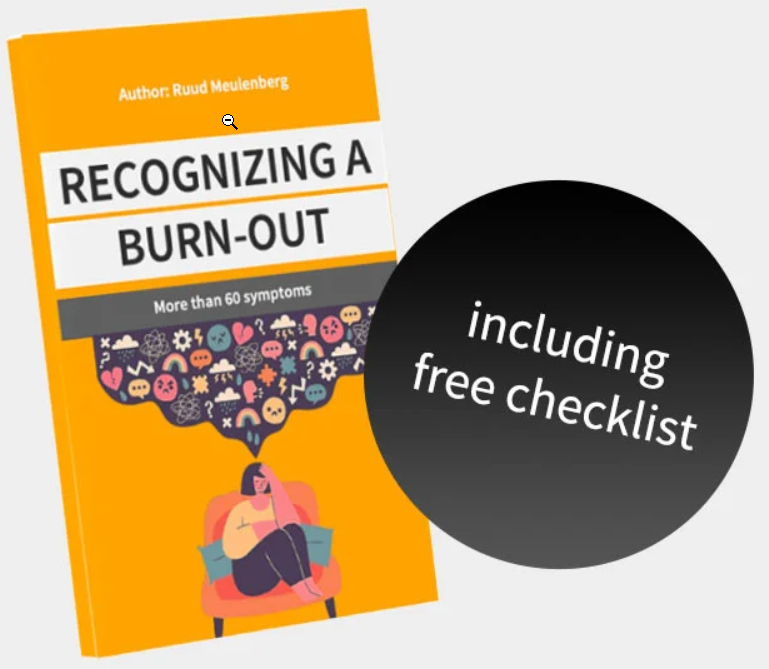Stress is the mental and physical state of anxiety, panic, and fear which can arise from many sources, including work, relationships, or finances. It can result in physical symptoms such as gastric problems, sleep problems, or even stomach ulcers.
Coping is a form of adaptation to stress and each person has unique ways of coping with stress and pressure, some better than others. With coping mechanisms, the body can return to a state of homeostasis after stressful periods. However, this isn’t always possible, in fact, it’s sometimes impossible, with coping mechanisms only providing short-term relief.
In this article, we shall explore coping mechanisms and how instead of being strategies that relieve pressure, they can actually contribute to it.
What are Coping Mechanisms?
Coping mechanisms are psychological and emotional ways of handling stress or pressure and they are both positive and negative. Positive mechanisms are healthy and assist an individual in dealing with pressures, whereas negative mechanisms generally complicate issues.
Can we help you?
Leave us your information and one of our coaches will contact you in 24H

Positive mechanisms involve the individual’s capacity to separate from the problem, taking an active role in solving it, doing what they can to improve the situation, and learning from past experiences to plan for future issues.
Negative mechanisms on the other hand, involve a tendency to give up, avoid, or ruminate over problems.
How Coping Mechanisms Contribute to Stress
Often, people use coping mechanisms without realizing they are unhealthy. Some methods make it easier to handle problems but often make it more likely for more problems to occur in the future. When strategies are used to avoid issues, find fault with someone else, or to withdraw from the situation, they can be harmful. Examples of negative strategies are drugs, smoking, alcohol, rebellion, or denial about bad situations. All these can have a negative impact on a person to a person, often causing physical and mental damage.
Emotions such as anger, contempt, or hostility (as opposed to calm, rational and measured perspectives) when used to cope with issues or problems, can make it harder to learn from the situation.
Let’s use anger as an example. Anger is a significant health risk factor itself. It can increase blood pressure and heart rate and cause anxiety even in healthy people. The effects of uncontrolled anger last long after the original stressor has passed.
Why Do People Choose Unhealthy Coping Mechanisms?
Unhealthy mechanisms can develop over time when people are repeatedly exposed to stress. For example, at first, a habit may seem harmless (such as popping a pill to get to sleep after a stressful day or opening a bottle of wine to unwind) as they help ease the pressure, but eventually, they make it harder for individuals to deal with stress normally and become a negative coping strategy.

There can also be other factors to why people choose unhealthy ways to manage pressure including genetics, personality traits, environment and social pressures all of which contribute directly or indirectly to a person’s conscious/unconscious choice of stress coping strategy.
Types of Negative Coping Mechanisms
There are many types of negative coping strategies all of which can start out as being stress busters, but end up causing anxiety in themselves.
Addiction
These are generally characterized as using a substance or behaviour to cope with pressure and feelings that the individual cannot face and work through alone. Aside from drugs and alcohol, food, sex, gambling, shopping, social media and overworking are also common.
These mood-altering substances or behaviours can give the individual a sense of calm, comfort, and security in times of anxiety or distress. However, addictions and these behaviours can lead to serious problems, such as dependency on the substance, negative physical effects (insomnia, chronic illnesses, weight gain, to name a few), mental health issues and even burnout. These impacts in themselves end up causing increased stress to the body and mind.
Passive-Aggressive Behaviours
These behaviours involve subtly expressing negative emotions and include put-downs, snide remarks, and secretiveness. All of these behaviours come from a desire for power, control, and attention from others.
Passive-aggressive behaviour can also be characterized by poor time management, intentional inefficiency, forgetfulness, stubbornness, withholding information or resources, procrastination, anger, and impatience. They often lead to a lack of work ethic and relationship problems. They can also lead to depression and feelings of helplessness, leading to increased anxiety.
Rationalization
This is an attempt to rationalize and justify unhealthy or hurtful behaviour. It involves making excuses for actions and trying to make them acceptable, even though they are unacceptable. One type of rationalization is justification [1]. It consists of focusing on the positive elements of a certain action and ignoring any negative elements that may occur later. This can lead to feelings of false security, which contributes to anxious feelings.
Suppression
Suppression involves denial, repression, or a conscious choice not to think about something. It causes the individual to avoid dealing with stressful situations and problems.
When used over a long period, suppression can lead to depression, low self-esteem, and problems with concentration. It also has negative physical effects on the body, such as high blood pressure and rapid heartbeat. These symptoms tend to worsen with time and contribute to feelings of pressure.
Passive Avoidance
This is characterized as an unwillingness to deal with problems and issues, even when obvious. This can include avoidance of situations or people that make the individual uncomfortable. It can also be a general reluctance to do anything in life.
Passive avoidance can lead to anxiety, depression, shame, low self-esteem, and can also cause migraine headaches and fatigue.
Changing Mindset to Choose Healthy Coping Strategies
Individuals can improve their health by changing to a healthier lifestyle, incorporating small and straightforward changes, and acquiring new, positive coping strategies. Unhealthy coping mechanisms, like addictions, denial, and suppression, often stem from learned behaviours. The encouraging news is that these behaviours can be unlearned.
Identification
The crucial step is recognizing unhealthy coping mechanisms and understanding their origins. By analyzing the reasons behind choosing certain behaviours, and consciously opting for healthier alternatives, individuals can shift from managing stress negatively to adopting positive pressure management strategies.

Download our
free e-book
Recognizing a burnout
(more than 60 symptoms)
Changing Beliefs
Profound and often subconscious beliefs significantly influence our stress coping mechanisms. Developing awareness of these beliefs, modifying them, and adapting your approach can pave the way for a more optimistic life perspective. Embracing positive attitudes, finding joy in life, and embracing setbacks and failures as part of the journey contribute to cultivating healthy beliefs. Such perspectives empower individuals with hope and enhance their emotional resilience.
Acceptance
Recognizing that challenges are a natural part of life is a valuable mindset. Embracing this awareness allows us to confront and overcome challenges with resilience.
Tips to Cope with Stress in a Positive Way
Here are some tips that can be adopted in everyday life to manage pressure in positive ways.
- Self-care – Practice self-care and relaxation exercises daily.
- Taking breaks can reduce the chances of burnout and fatigue, both physical and mental.
- Get plenty of sleep – Sleeping at least eight hours a night can decrease the chances of illness and fatigue. Sleep at the same time daily, even on weekends. This will help your body to develop a natural rhythm for sleeping and waking up.
- Eat healthy foods – Especially foods high in water content and fibre. These types of food can help with hydration and digestion, reducing feeling bloated or sluggish.
- Create supportive relationships – Try to meet with a friend or member of your social circle regularly. This helps people feel needed and less alone.
- Make a realistic plan for the future – Create goals, work towards them, and then celebrate them when they are achieved. Set realistic goals you know you can meet, even if it takes work or time.
Where to Get Help with Stress
There are many sources of help available for pressure management as follows:
Stress Coaches, Counsellors, Psychologists, and Psychiatrists
These people are trained to provide cognitive stress management therapy. This form of psychotherapy works by changing thinking patterns that lead to stress.
Therapists
Therapists can help you learn coping skills and provide support when facing challenges. They can help to improve your quality of life by assisting with positive thinking and goal setting. They can also give useful information and support to individuals experiencing stress, anxiety, or depression.
Support Groups and Community Programs
These can be useful if held in a positive environment. You can get help from others who have been through similar situations and offer support. You can share your experiences and get advice from a large community. This can be especially useful for those who cannot afford a therapist.
Sponsor
If you have a problem with addictions, a sponsor can be helpful. A sponsor can be someone living with the same issues but has made it through to recovery. They will help guide the recovering person and support them through changes, enabling them to choose healthy challenge management strategies.
Stress & burnout coaching; for 100% recovery!
Reducing stress and recovering from burnout is simply incredibly difficult. The coaches at Meulenberg Training & Coaching understand exactly what you are going through and know how tough it can be. They have often experienced it themselves! With their years of experience and expertise, they are ready to help you step by step toward a full recovery. The results of our one-on-one coaching and absenteeism training will benefit you for a lifetime!
FAQs
References
- ncbi.nlm.nih.gov – Defense Mechanisms – found on 29/01/2024
Link to page on ncbi.nlm.nih.gov






